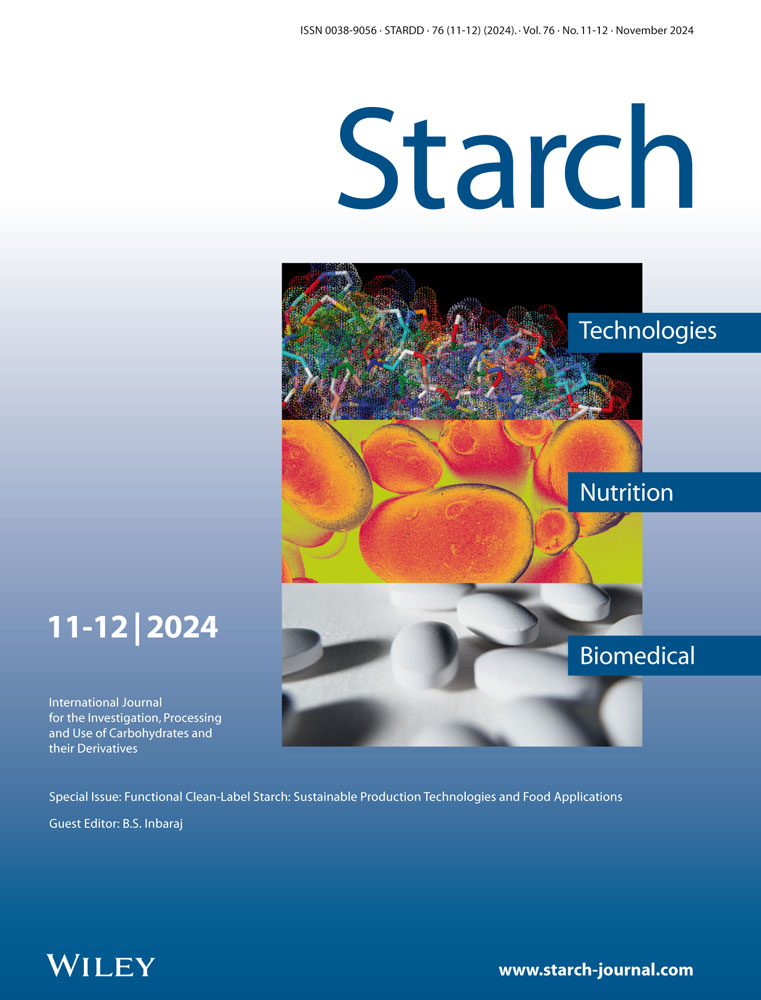Sustainable Superheated Steam Drying of Unripe Banana (Musa acuminata cv. Hom Thong): Effects on Resistant Starch and Physicochemical–Functional Properties
Abstract
Utilizing unripe banana flour (UBF) has gained considerable interest recently due to its functional components, particularly its resistant starch (RS), which could control obesity and diabetes. This study explores the novel approach of superheated steam drying (SSD) to produce UBF. Banana slices with 1, 2, or 3 mm thicknesses are dried using SSD at 75, 85, 95, or 105 °C. The resulting UBFs are analyzed for starch content and physicochemical–functional properties and compared with conventional hot-air drying (HAD) at 55 or 75 °C. Replacing HAD with SSD saves 75% of the drying time and increases the whiteness index. SSD-produced UBF has a high RS content, excellent resistance to enzyme digestion, and potential beneficial health effects. At the same time, scanning electron microscopy shows that the SSD- and HAD-dried samples have similar morphological characteristics. The swelling power, water solubility index, and water holding capacity of the UBF increases rapidly above 70 °C. The peak viscosity, breakdown, and setback of SSD-dried UBF are greater than those of HAD at the same temperature. Technological properties (high hydration value and peak viscosity) and reduced processing time make SSD-dried UBF a potential natural thickening ingredient for the food industry.
Conflict of Interest
The authors declare no conflict of interest.
Open Research
Data Availability Statement
The data that support the findings of this study are available from the corresponding author upon reasonable request.




